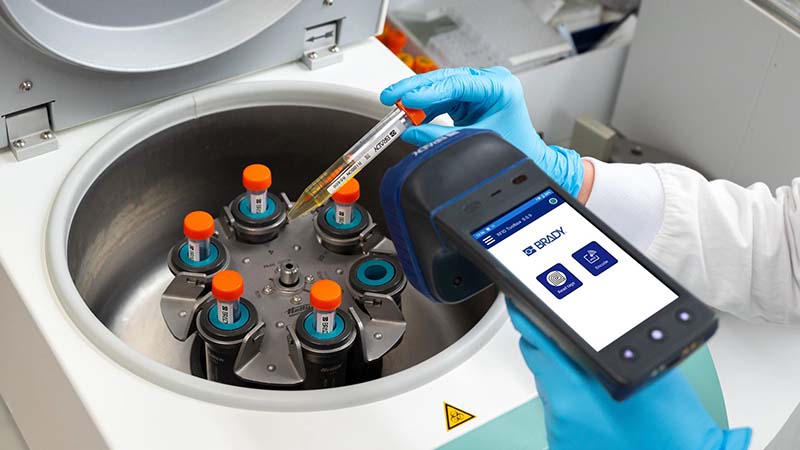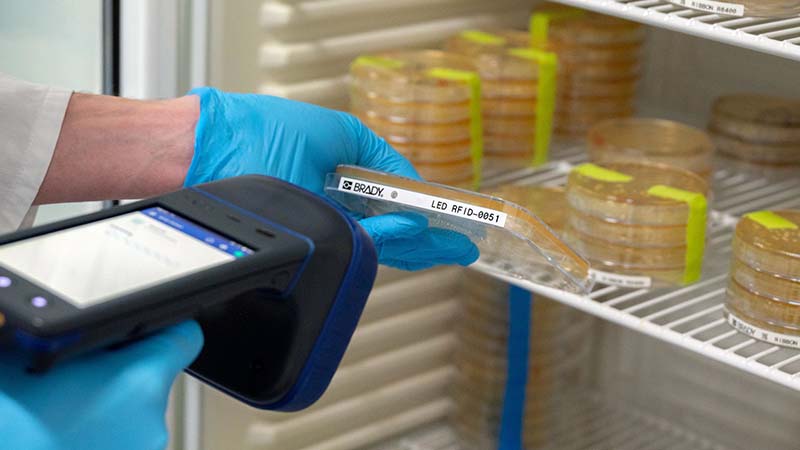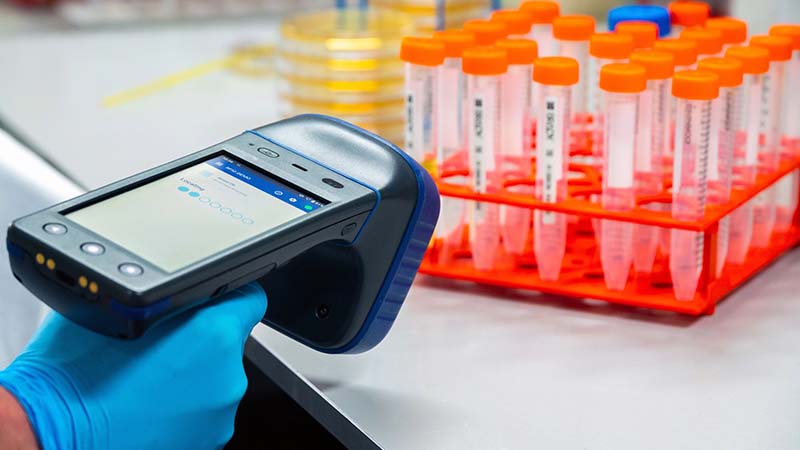Labels for Safety, Visuals and Facility ID Desktop Printers
Labels for Product, Wire and Lab ID Benchtop Printers
Labels for Safety, Visuals and Facility ID Desktop Printers
Labels for Product, Wire and Lab ID Benchtop Printers
Safety and Facility ID Desktop Printers
Product, Wire and Lab ID Benchtop Printers
Barcode Scanner and Printer Kits
Barcode Scanner and Printer Kits
PaintStripe Floor Marking Stencils
Valve Lockouts & Hose Lockouts
Group Lock Boxes & Permit Control
Brady Safety Lockout Tagout Services
Pipe Marker Accessories & Mounting Brackets
Maintenance and Production Tags
Calculators and Assessment Tools
Product Finders and Data Sheets
Radio Frequency Identification (RFID) technology is used in a variety of applications, such as inventory management, asset tracking, and access control. It’s a convenient and efficient way to track and identify objects, and is becoming increasingly popular in a variety of industries, like lab settings, where accuracy is crucial.

RFID technology has revolutionized lab operations by enhancing efficiency, improving accuracy, and ensuring compliance with industry standards. A big part of this solution comes from RFID readers, like the HH83 and HH85 Handheld RFID Readers, which help minimize errors with superior read ranges and provide reliable, accurate data with flexible software support.

Here are a few ways labs have gained significant advantages by leveraging RFID technology:

While RFID technology offers numerous benefits in laboratories, implementing handheld RFID readers may present certain challenges and considerations:
Durability
Due to their portability, handheld RFID readers may be more susceptible to damage. Look for ruggedized models, like the HH83 and HH85 that are IP65-rated and designed to withstand 5' drops for industrial-grade durability.
Training
Lab staff may be resistant or require training to use a new technology. Brady has easy-to-use scanners with intuitive features and solutions that cover many data-tracking needs.
Workflow integration
Handheld RFID readers must be seamlessly integrated into existing workflows to ensure day-to-day tasks don’t get held up.
Labs need to have a robust data management system in place to store, manage, and analyze all the data collected. With a little understanding and the right tools, you can easily implement RFID asset tracking into your current system.

Explore six best practices for effective lab sample management, focusing on precision, compliance, and productivity enhancements.
Learn what to label in the lab
Learn about improving workflow efficiency and accuracy in lab environments through laboratory automation.
Discover the power of lab automation
Discover essential strategies for effective lab sample management, focusing on improving data integrity and facilitating successful outcomes in scientific research.
Explore our sample management tips